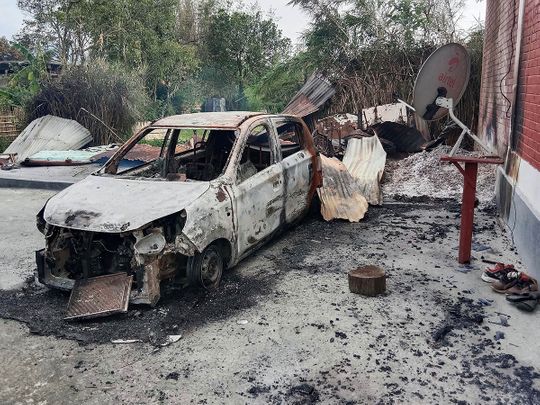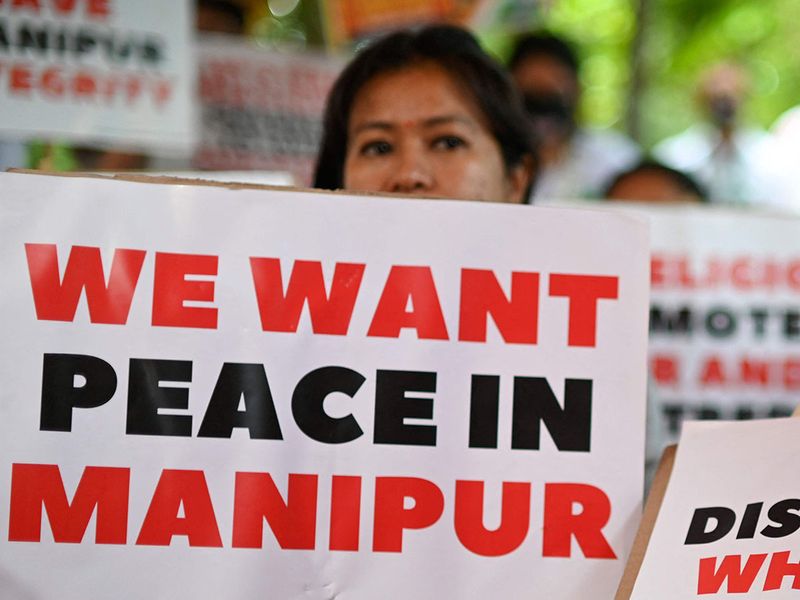
After the Ukraine-Russia war started in February 2022, Ukraine saw 22 instances of internet shutdowns until December.
Guess how many instances of internet shutdowns India saw in 2022? 84 internet shutdowns, almost 4 times the number in war-ravaged Ukraine.
For state governments across India, across party lines, internet shutdown has become a knee-jerk reaction to any civil unrest. The arguments are made in the absence of actual evidence and studies supporting them. It is just presumed that social media will be used to spread false rumours and incite passions, thus multiplying the violence.
The north-eastern state of Manipur has been under an internet shutdown since May 3 due to the ethnic violence between the Meteis and the Kukis.
On 25 July, the state was forced to restore broadband connections, which it did with 10 impossible conditions, such as wanting users to delete social media apps on their devices. Mobile internet continues to be completely unavailable.
Read more
Even the partial lifting of the internet was enough for some horrific videos to come out and for the world to see the kind of violence that has taken place. Yet the violence and tension continue — five more died just last Friday.
With at least 180 people dead and thousands displaced in Manipur, it is time to ask: why blame the internet? If authorities cannot restore peace despite shutting down the internet, that itself should be seen as evidence that it wasn’t the internet that was to be blamed for the violence.
Internet didn’t start the fire
It wasn’t the internet that started the violence — it was plans to give the majority Meiteis “Scheduled Tribe” status that sparked the violence, after a series of incidents that exacerbated the divide between the two communities.
The internet shutdown since then may have actually caused more harm than good. Disinformation and misinformation spread by word of mouth anyway. The internet’s ability to counter false information cannot be used gainfully with a blackout. Government officials and law enforcement authorities cannot make their words reach the last person, certainly not as effectively as through the internet.
A continued internet shutdown actually fuels more rumours, distrust and disinformation. People are likely to believe hearsay because they have no means to get verified information from credible news and government sources. They can’t tweet saying this is what they are hearing, can someone confirm this? They can’t post photos, videos and information of violence they see first-hand, ensuring that people feel helpless, unable to draw the attention of law enforcement authorities to heinous crimes.
An internet shutdown is a grave violation of the right to freedom of speech and expression. As Manipur shows, the internet shutdown was actually counterproductive. Extremists on both sides were able to carry on with the violence under the cover of darkness. They didn’t have to fear that ubiquitous weapon of the new century — the smartphone video.
The perpetrators seen in a video parading a woman naked reportedly tried to have to videos deleted. And it was only after the video appeared online that the government got into action and arrested some of them.

Sunlight is the best disinfectant
If someone incites violence, the government is more than capable of catching hold of them and bringing them to justice. Individual accounts can be blocked, as they often are, sadly without even being given a chance to defend themselves. The internet today, in India and elsewhere, is far too regulated for us to believe in the outdated idea of shutdowns to enforce peace.
We, therefore, need a fresh debate on internet shutdowns, their effectiveness and desirability. An internet shutdown cripples daily life because today daily lives are internet-based: cabs, food delivery, online payments, and so on. When there is violence on the streets, those who don’t want to partake in the violence can sit home and do online work, entertain themselves with OTT shows, and classes can move online.
Absolute shutdowns like the one in Manipur only give people too much free time, without any avenue to take out their political anger online. Internet shutdowns may thus only lead to more violence.
The current rules for internet shutdowns, formulated in 2017, are outdated. They allow an internet shutdown for 15 days in one go, and it can be renewed the next day. They should be amended to allow mobile internet shutdown for a maximum of 24 hours, and broadband shutdown for maximum 12 hours.
If a state government cannot restore law and order in this much time, the problem is not the internet. The next shutdown should not be allowed in the same areas for at least another week.









